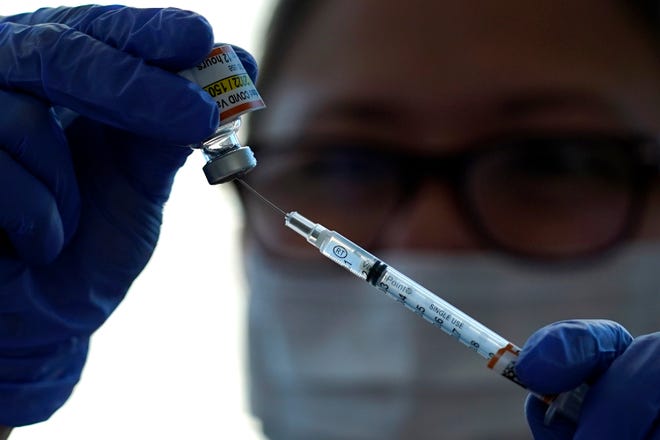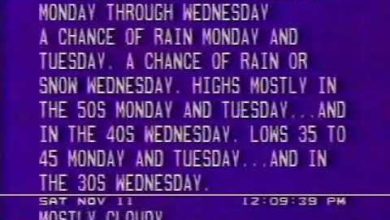
COVID-19 booster shots will soon be available to any adult who wants one.
An expert advisory panel voted unanimously Friday to support expanding booster shot availability and said people over 50, many of whom have medical conditions putting them at extra risk for severe COVID-19, should get an additional shot. The committee spent three hours reviewing safety data and considering the benefit booster shots would have in fighting the COVID-19 pandemic.
Centers for Disease Control and Prevention Director Dr. Rochelle Walensky quickly signed off on their decisions, making them federal policy.
“After critical scientific evaluation, today’s unanimous decision carefully considered the current state of the pandemic, the latest vaccine effectiveness data over time, and review of safety data from people who have already received a COVID-19 primary vaccine series and booster," she said in a prepared statement. "Based on the compelling evidence, all adults over 18 should now have equitable access to a COVID-19 booster dose.”
Earlier Friday, the Food and Drug Administration removed limits on who could could get booster shots.
Stay connected:Subscribe to Coronavirus Watch, your daily update on all things COVID-19 in the USA
The Moderna and Pfizer-BioNTech shots, which have been available to a select group for some time, should be immediately available to any adult who had their initial shots at least six months ago.
People who received the single-dose Johnson & Johnson vaccine were already encouraged to receive a booster shot at last two months after their initial dose to bring their protection up to the same level as those who received the two-dose vaccines from Pfizer-BioNTech or Moderna.
Mixing and matching vaccine brands is allowed.
The J&J and Pfizer-BioNTech booster shots are identical to initial vaccines, while Moderna decided that a half-dose booster would be equally protective and lead to fewer side effects.

Initial vaccines are still doing an excellent job of protecting against severe disease and hospitalization, particularly of young healthy people. But their effectiveness against any infection starts to fade at about six months. Boosting brings the level of protection back up above 90%, Pfizer-BioNTech data shows.
Widespread booster shots should also help cut down on transmission of the virus. Although vaccines have only been shown to reduce someone's infectiousness for a short period, that may be enough to get through the holiday season and the coldest part of the winter, when the risk for more COVID-19 cases is highest, officials said.
Although boosters have been available to a limited population for a while, only about 16% of those eligible for the extra shots have gotten them so far.Some states have already allowed boosters for all adults.
When will everyone be vaccinated for COVID-19? Here's how the vaccine rollout is going
Committee members said they hoped that loosening the restrictions would reduce confusion about who is eligible and encourage more people to get an additional shot.
"The current guidelines, though well intentioned and thoughtful…create confusion," Dr. Nirav Shah, director of the Maine Center for Disease Control and Prevention, told the advisory panel.
Shah, who is not a voting member but who participated in Friday's meeting as president of the Association of State and Territorial Health Officials said state health officials are unanimously in favor of loosening restrictions on boosters. "We want to remove confusion and replace it with clarity," he said. "Eligible individuals are not receiving boosters at the moment because of this confusion."
Booster shots have been shown to be extremely safe, with no additional side effects beyond those seen in initial shots.
In Israel, where about 4 million people have received boosters, fewer side effects have been seen after the third dose than the second. This was also true for a rare side effected called myocarditis, in which the heart muscle becomes inflamed.
On balance, the committee members said the data convinced them that boosters should be available to everyone.
"It is reasonable for us to facilitate an individual being able to make the choice of benefit versus risk," said committee member Dr. Sarah Long, a pediatric infectious disease expert at Drexel University College of Medicine and St. Christopher’s Hospital for Children, both in Philadelphia.
The committee decided everyone over 50 "should" get a booster rather than simply permitting them in that age group. They also recommended that anyone living in a long-term care facility, regardless of age, should get a booster.
Tracking COVID-19 vaccine distribution by state:How many people have been vaccinated in the US?
All other adults "may" get boosters at least six months after their previous shots, the Advisory Committee on Immunization Practices decided.
Data shows that the risk for serious disease goes up with age, although all age groups are vulnerable to infection with COVID-19.
Young people may even be more vulnerable, CDC data shows. In an analysis presented to the committee, between 50 and 80 adults under 30 would need to get booster shots to prevent one COVID-19 infection, compared to 85 to 135 of the oldest adults.
Earlier this fall, the committee restricted boosters to those at highest risk for infection or for severe COVID-19.
Israeli data showed that widespread availability of booster shots helped bring down skyrocketing infection rates this summer and fall.
Infection rates in the U.S. had fallen substantially in September and October, but have been climbing again over the last three weeks. Cases are also rising substantially in much of Europe.
Committee members and CDC officials said they were worried about infection rates in the United States as families gather for the holidays and people spend more time indoors in the cooler weather.
They also emphasized that protecting unvaccinated people will do more to fight the pandemic than providing booster shots. Unvaccinated people still account for the vast majority of those hospitalized with COVID-19, data shows.
The Biden administration has already pre-purchased enough doses to provide boosters free of charge to whoever qualifies. Those doses should be widely available immediately at pharmacies and clinics nationwide.
Contact Karen Weintraub at [email protected].
Health and patient safety coverage at USA TODAY is made possible in part by a grant from the Masimo Foundation for Ethics, Innovation and Competition in Healthcare. The Masimo Foundation does not provide editorial input.
Source link








